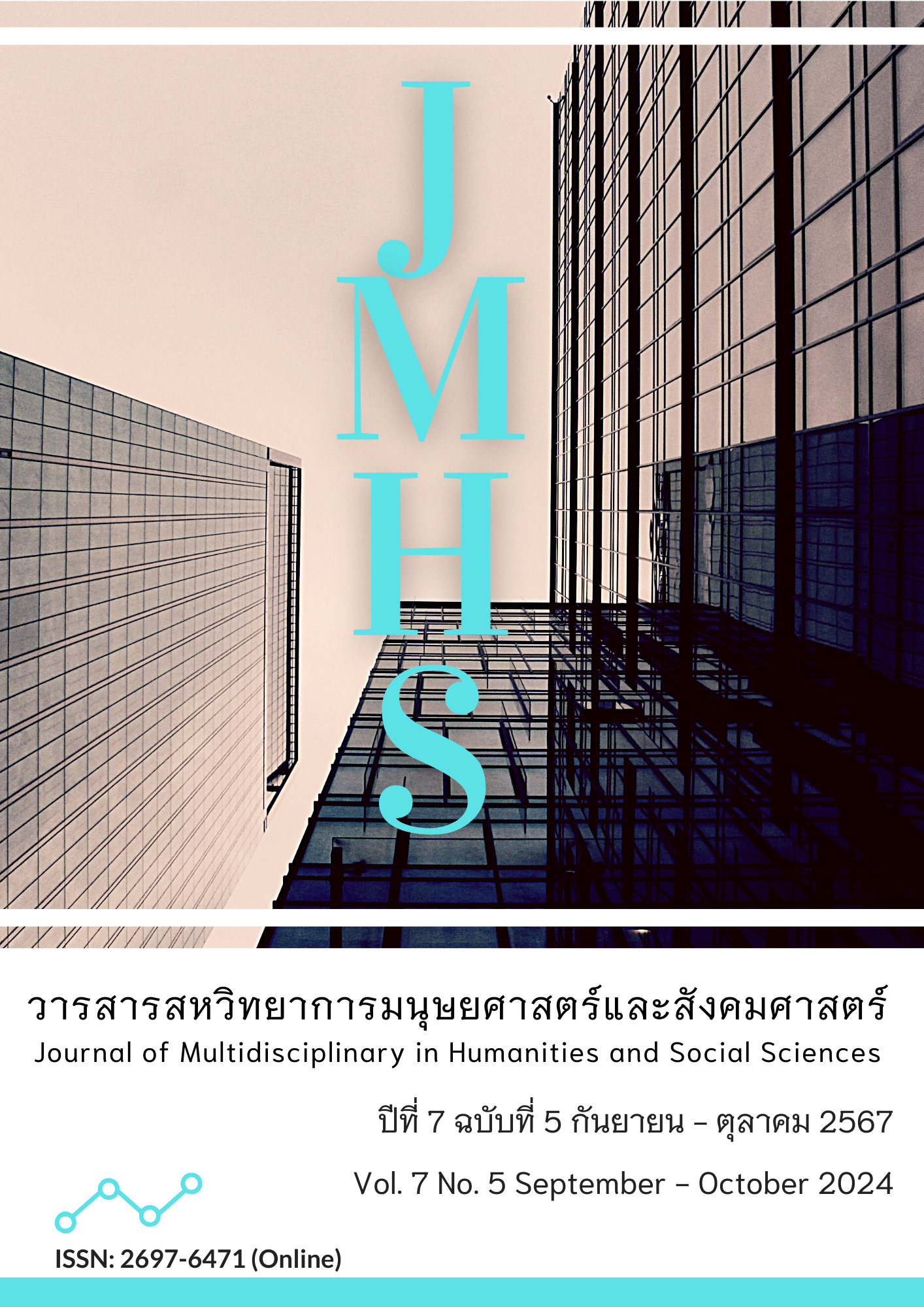The Relationship Between Popular and Traditional Chinese Music in the Context of Cultural Appropriation
Main Article Content
บทคัดย่อ
This study explored the intricate relationship between traditional and modern Chinese music within the context of cultural appropriation, focusing on Chinese pop music. It highlighted the significance of ethnic culture in contemporary compositions and investigated how traditional elements intersect with modern popular music to create new musical landscapes. The primary objectives were to examine the identity of ethnic culture in modern Chinese pop music, to explore the intersection of tradition and innovation, and to analyze the musical culture dynamics of contemporary Chinese society. This study employed a mixed-methods approach, which involved content analysis of music compositions and interviews with musicians and cultural experts from various regions of China. The findings revealed that Chinese musicians were increasingly incorporating traditional instruments, melodies, and themes into their pop music, reflecting a blend of cultural preservation and innovation. This integration not only enriches the musical landscape but also fosters a newfound appreciation for cultural diversity and heritage. Furthermore, the study proposed strategies to enhance the quality of modern Chinese pop music while preserving cultural traditions, advocating for the integration of contemporary technical advancements with traditional musical elements. These insights contribute to a deeper understanding of the transformative power of music in interpreting and shaping societal dynamics, promoting respectful cultural exchange, and preserving cultural heritage in a globalized context.
Article Details

อนุญาตภายใต้เงื่อนไข Creative Commons Attribution-NonCommercial-NoDerivatives 4.0 International License.
ทัศนะและความคิดเห็นที่ปรากฏในวารสาร ถือเป็นความรับผิดชอบของผู้เขียนบทความนั้น และไม่ถือเป็นทัศนะและความรับผิดชอบของกองบรรณาธิการ
เอกสารอ้างอิง
Baranovitch, N. (2003). China's new voices: Popular music, ethnicity, gender, and politics, 1978-1997. University of California Press.
Chen, Z. (2023). The adaptation of traditional music for contemporary audiences. Journal of Chinese Music Studies, 14(3), 123-145.
Chu, Y.-W. (2019). The emerging (national) popular music culture in China. Inter-Asia Cultural Studies, 8(3), 425-437.
De Kloet, J. (2010). China with a cut: Globalisation, urban youth, and popular music (Vol. 3). Amsterdam University Press.
De Kloet, J., Poell, T., Guohua, Z., & Yiu Fai, C. H. O. W. (2019). The platformization of Chinese society: Infrastructure, governance, and practice. Chinese Journal of Communication, 12(3), 249-256.
Fung, A. Y. (2007). The emerging (national) popular music culture in China. Inter-Asia Cultural Studies, 8(3), 425-437.
Green, L. (2012). Music education, cultural capital, and social group identity. In M. Clayton, T. Herbert, & R. Middleton (Eds.), The cultural study of music: A critical introduction (pp. 263-274). Routledge.
Guy, N. (2009). Flowing down Taiwan's Tamsui river: Towards an ecomusicology of the environmental imagination. Ethnomusicology, 53(2), 218-248.
Iwabuchi, K., Tsai, E., & Berry, C. (2016). Routledge handbook of East Asian popular culture. Taylor & Francis.
Lissoir, M. P. (2016). Archives internationale de musique populaire et musée d'ethnographie de Genève: Chine: Tsar Teh-yun (1905-2007), maître du qin. MUSICultures.
Moskowitz, M. L. (2009). Cries of joy, songs of sorrow: Chinese pop music and its cultural connotations. University of Hawaii Press.
Ng, W. C. (2021). Thomas Irvine. Listening to China: sound and the Sino-Western encounter, 1770–1839. Asian Music, 52(2), 205-207. https://doi.org/10.1353/amu.2021.0015
North, A. C., & Hargreaves, D. J. (1999). Music and adolescent identity. Music Education Research, 1(1), 75-92.
Picken, L. E. R. (1969). T'ang music and musical instruments. T'oung Pao, 55(1/3), 74-122.
Shuker, R. (2017). Popular music: The key concepts. Routledge.
Stock, J. P. J. (2001). Toward an ethnomusicology of the individual, or biographical writing in ethnomusicology. The World of Music, 43(1), 5-19. http://www.jstor.org/stable/41699350


